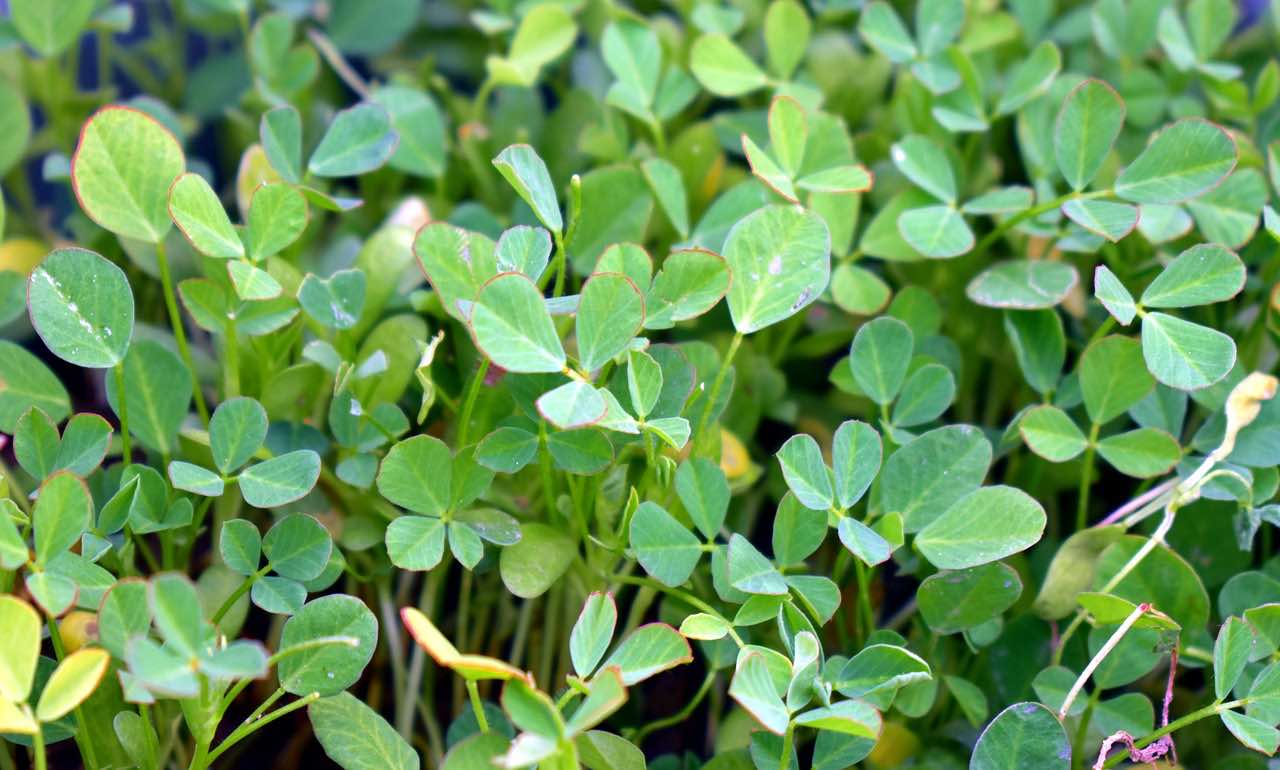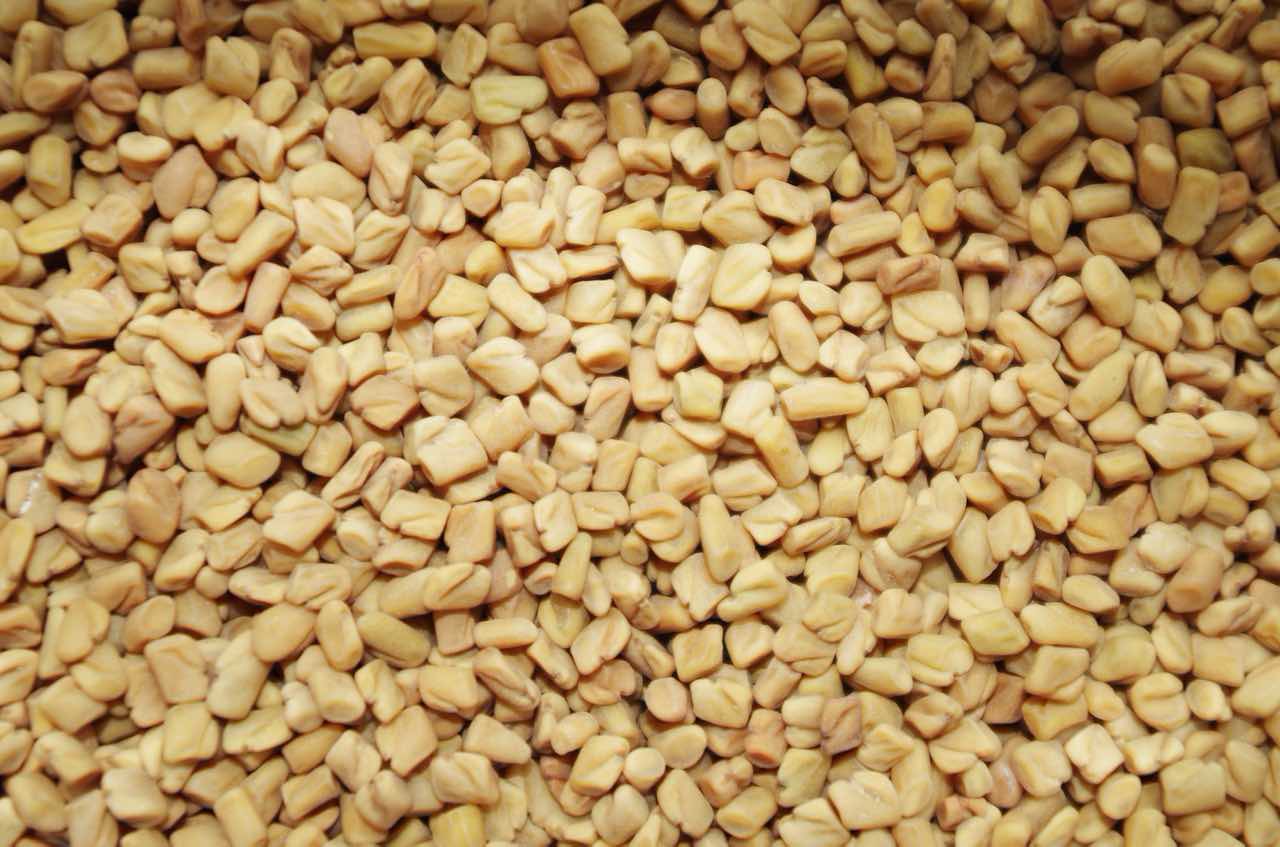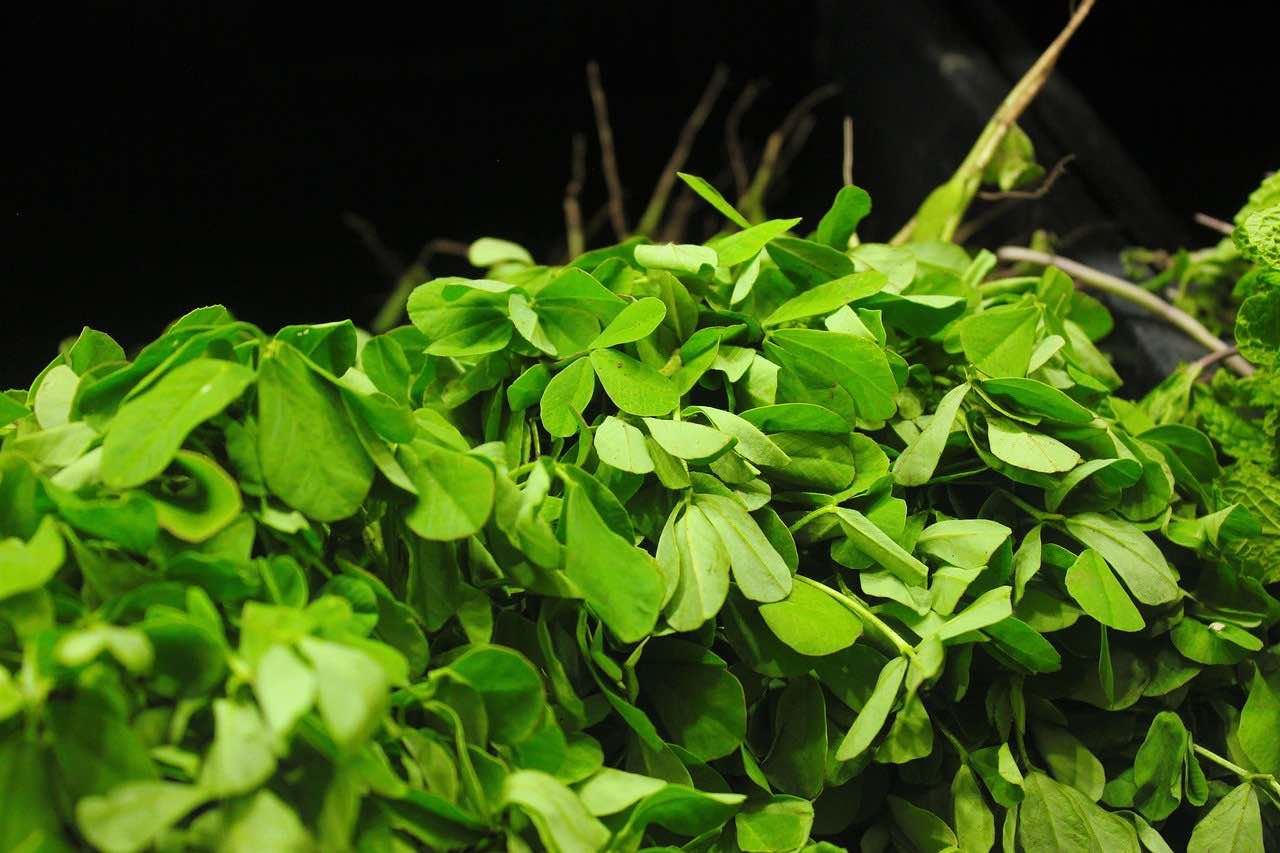Most Asian households have a jar of fenugreek seeds somewhere in the kitchen cabinets or a bunch of its leaves stores in the refrigerator. Yes, that makes your food tasty, but you will be surprised by the fenugreek seeds benefits that this simple item can bring to you and your family.
You will be surprised to know that even Chinese medicines have recurrent mentions of fenugreek.
Scientific research has now verified the medicinal uses of fenugreek as well. Beauty companies are now experimenting with products that have fenugreek oil. Fenugreek tea too is now a popular drink all around the world.
Contents
What is fenugreek?
Fenugreek is a type of herb that belongs to a plant family known as Fabaceae. This plant is native to Western, South, and Central Asia, Southern Europe, and the Mediterranean region.
South Asia and many parts of the world use fenugreek in cooking. It also has several medicinal values. In fact, the use of fenugreek as a medicinal plant goes back to thousands of years and evidence of this is found in ancient Chinese medicine as well as Ayurveda.
The fenugreek plant has tiny white flowers, as well as small pods. These pods contain the fenugreek seeds that are usually brown or yellow in colour. (source)
Fenugreek Meaning
Scientific name: Trigonella foenum-graecum
Fenugreek seeds meaning in English is that it is a leguminous annual Eurasian herb with aromatic seeds.
What is Meaning of fenugreek seeds in Other Languages
- Fenugreek meaning in Tamil: It is known as Vendhayam (வெந்தயம்) in Tamil
- Fenugreek meaning in Telugu: It is known as Mentulu (మెంతులు) in Telugu.
- fenugreek seeds meaning in Kannada: It is known as Mente kāḷu (ಮೆಂತೆ ಕಾಳು) in Kannada.
- Fenugreek meaning in Bengali: It is known as Mēthi-gācha (মেথি-গাছ) in Bengali.
- Fenugreek meaning in Gujarati: It is known as Mēthī (મેથી) in Gujrati.
- Fenugreek meaning in Malayalam: It is known as uluva (ഉലുവ) in Malayalam.
- fenugreek meaning in Marathi: It is known as Mēthī (मेथी) in Marathi.
Fenugreek Plant
The fenugreek plant belongs to the pea family and is herbaceous in nature. Usually, a fenugreek plant grows up to 2 to 3 feet in height. The fenugreek plant, when flowering, consists of small, white flowers and tiny pods.
Within these pods, the fenugreek plant contains its seeds.

Fenugreek Seeds
Fenugreek seeds are found in the pods of the fenugreek plants. These seeds are usually small and hard. They are yellow in colour but they are available in shades of amber and brown as well.
Fenugreek seeds usually have an angular, rough shape. These seeds have a significantly bitter taste as well as a distinct aroma. Fenugreek seed powder is often used as a flavouring agent. They are also known as methi seeds. These are used to make special dishes like Dana Methi ki Sabzi or Panch Phoron.
Fenugreek seeds have several health benefits. It can help with diabetes, weight loss, reducing bad cholesterol, and enhancing menstrual health, kidney ailments, deficiency of vitamins, and arthritis, to name a few.

Fenugreek Leaves
The fenugreek leaves used in various forms for cooking. In India, fenugreek is known commonly as methi. Fresh leaves from the fenugreek plant are cooked in various dishes. This is known as saag.
Sometimes, the leaves are dried and used as an aromatic herb. It has a rich flavour and is commonly known as Kasuri methi.

Dried Fenugreek Leaves
Fenugreek is dried in the sun and used as an aromatic herb in cooking in India and several other countries in South Asia. Usually, dried fenugreek leaves have a lingering bitter taste, however, when added to specific dishes, it can add a different flavour and enhance the taste of the dish.
Dried fenugreek leaves are known as Kasuri methi in India.

Nutrition Facts & Taste
Fenugreek has great nutritional value. Fenugreek seeds are a rich source of protein.
Fenugreek Nutritional Value: Seeds
Every 100 grams of fenugreek seeds contains close to 46% of protein. A 100 grams of fenugreek seeds will contain B Vitamins (28%), dietary fibre (25g), iron (34mg), manganese (191mg), and dietary minerals as well.
One tablespoon of fenugreek seeds will contain close to 35 calories. It will also give you 1 gram of fat, 3 grams of protein, 3 grams of fibre, 6 grams of carbohydrate, and a significant amount of iron(20% of the daily value) and magnesium(5% of the daily value).
Fenugreek Benefits
1. Fenugreek seeds benefits for weight loss
Researchers have conducted many studies to prove the benefits of fenugreek seeds for weight loss. An experiment on obese rats showed that their body mass index went down significantly, and overall body weight, as well as the weight of adipose white tissue also came down. (source)
In another research, scientists observed that the consuming 500mg of fenugreek supplements on a daily basis, for eight weeks, reduced body fat and increased the level of testosterone in men. (source)
Additionally, a group of 39 healthy, scientists administered a regular dosage of fenugreek to overweight male candidates, after which the subjects’ fat intake or consumption significantly decreased. (source)
Similarly, researchers conducted another study on a group of men who exercised regularly. They administered 500mg of fenugreek extract, on a daily basis, for 8 weeks to the subjects. By the end of the study, the scientists observed that in addition to reducing the body fat, fenugreek also increased their ability to exercise, particularly for bench press and leg workouts. (source)
One study, conducted on 18 healthy obese candidates administered four to eight grams of isolated fenugreek fibre to the subjects. By the end of the study, researchers found that the administration of fenugreek suppressed appetite and increased a feeling of satiety. They also recorded an increase in the levels of insulin. (source)
One of the other benefits of fenugreek is that it can lower the levels of bad cholesterol in the body, which in turn may lead to weight loss. (source)
Related Article
2. Enhances the production of breast milk
The elderly often ask lactating mothers to consume fenugreek seeds. It can help with the flow of breast milk and breast milk production. This home remedy has been practised for years in different parts of the world.
It is believed that fenugreek is a galactagogue, which means it contains substances that can enhance the flow of breast milk. However, it is worth noting that this is based on purely anecdotal information. (source)
The typical dosage of consumption if you are taking fenugreek for enhancing the production of breast milk, is around one to six grams, on a daily basis. It is considered a safe product.
However, while fenugreek is widely used in traditional medicines for the production of breast milk, reports are there of women experiencing adverse effects. A cross-reaction, when fenugreek is consumed alongside certain food items like peanuts, is also possible. (source)
3. Helps with diabetes
Fenugreek seeds have beneficial effects in controlling both type 1 and type 2 diabetes. Studies have shown that drinking fenugreek water or fenugreek seeds and powder soaked in water, can reduce the levels of blood sugar in the body after a meal. It can also decrease insulin resistance in the body. (source)
In one particular study, scientists gave50 grams of fenugreek powder to type 1 diabetic patient. By the end of ten days, they recorded a reduction in their blood sugar and bad cholesterol levels. (source)
In another study, scientists gave people suffering from type 2 diabetes were 10 grams of fenugreek seeds on a daily basis. These seeds were soaked in hot water. By the end of the study,the doctors concluded that fenugreek was effective in controlling type 2 diabetes. (source)
A significant improvement in the levels of plasma glucose was observed in another study, after the moderate to high dosage of fenugreek on a daily basis. Similarly, consuming fenugreek bread showed significant improvement in blood sugar levels in those suffering from type 2 diabetes. (source)
4. Can reduce bad cholesterol
The high fibre content present in fenugreek seeds can help regulate the cholesterol levels in your body. Fenugreek seeds contain certain compounds like pectin, tannins, hemicellulose and mucilage, which can prevent the buildup of bad cholesterols (LDL). (source)
A study was conducted by the University of Michigan Health System. In this study, the relationship between high cholesterol levels in the body and fenugreek, as well as its effects of lowering bad cholesterol levels were studied. It was concluded that fenugreek seeds contain something known as steroidal saponins.
This is believed to slow the rate at which the intestines absorb cholesterol. Additionally, fenugreek can also slow the rate at which the body absorbs triglycerides, particularly from foods that are rich in fat. (source)
5. Beneficial for menstrual health
Fenugreek is good for menstrual health. It can treat a condition known as dysmenorrhea. Women suffering from dysmenorrhea experience severe uterine contractions during their periods. Consuming as much as 1800mg to 2700mg of fenugreek during periods has shown to relieve pain associated with dysmenorrhea. (source)
Fenugreek contains proteins known as lysine and tryptophan, which is beneficial in treating menstrual cramps. Additionally, fenugreek can also help with the symptoms associated with menopause, like abdominal cramps and inflammation. (source)
Many people believe that fenugreek also has the ability to treat PCOS. There is insufficient evidence for this, but one study claimed that the size of the ovarian cysts was reduced, after the consumption of fenugreek, on a daily basis. (source)
6. Fenugreek benefits for PCOS
Polycystic Ovary Syndrome or PCOS is a condition that affects women who have reached their reproductive age. One of the effects of Polycystic Ovary Syndrome is the inability of the body to use the insulin that is being produced.
When this happens, the body eventually tends to gain weight. Abnormal production of testosterone levels is observed as well. Consuming fenugreek can help treat these issues. (source)
In another study, the daily consumption of 1000mg of one particular type of fenugreek seed extract was administered. By the end of the study, it was observed that the size of the ovarian cysts was reduced. (source)
However, there is insufficient evidence to back this up.
7. It can boost the level of testosterone in the body
Studies have been conducted on a group of male volunteers, to observe the effects of fenugreek on the levels of testosterone in the body. These men were administered with 500mg of fenugreek extract on a daily basis.
By the end of the study, an increase in the levels of testosterone in their body was observed. However, it is worth noting that no change was observed with regard to their endurance or muscle strength. (source)
Health Benefits Of Fenugreek Seeds
Fenugreek seed benefits extend much beyond than just adding a special aroma and flavour to food. It has several benefits for your health, skin, and hair as well.
Benefits of Fenugreek Seeds Soaked in Water
Fenugreek seeds when soaked in water and consumed first thing in the morning on an empty stomach can promote weight loss and facilitate digestion. It is also effective in treating diabetes, certain vitamin deficiencies, and kidney ailments. Additionally, it can lower bad cholesterol levels, treat menstrual cramps, and facilitate the flow of milk in breastfeeding or nursing mothers and increasing milk production. (source)
Fenugreek benefits for skin
Fenugreek seeds contain Vitamin C, which can brighten your skin and add an extra glow to it. It can also moisturise your skin, cleanse it, and remove dead skin cells. Applying a paste made of fenugreek seeds to your face can reduce age spots and remove blemishes and dark spots on your face as well. These seeds also have a few compounds that boast of anti-ageing properties. (source)
Fenugreek seeds benefits for hair
The seeds are great for your hair. Many beauticians add fenugreek to hair masks to treat hair loss. It has antifungal and antimicrobial properties that can treat dandruff and keep infections at bay as well. The nutrients present in fenugreek can also promote the growth of hair.
Fenugreek Leaves Benefits
There are many health benefits of fenugreek leaves. These are –
- Fenugreek leaves can help treat bowel disorders
- Consuming fenugreek leaves can help dissolve kidney stones
- It can lower the levels of bad cholesterol
- It can treat acne and many people use it to remove blemishes and age spots
- The leaves of fenugreek can help regulate and control the blood sugar levels in the body
- Helps with hair growth and stimulates hair follicles.
Fenugreek uses
Fenugreek is commonly used to treat several digestive issues such as the loss of appetite, constipation, an upset stomach, and gastritis. Often, traditional medicine recommends that you consume fenugreek to treat menstrual cramps and insulin resistance associated with polycystic ovary syndrome.
Scientists have conducted studies to show that fenugreek can help with fertility in both men and women. It can treat erectile dysfunction, hernia, and male infertility, as well as boost the sex drive in men and women.
Fenugreek is effective in treating kidney ailments. It has substances that can dissolve kidney stones and purify the blood.
Fenugreek can positively enhance the flow of milk in nursing mothers.
Another common use of fenugreek is as a poultice. You can use a poultice to treat inflammation or soreness. In fact, fenugreek is a natural pain killer.
As mentioned previously, fenugreek has several culinary uses as well. In various cuisines, people use the leaves to make special dishes, and use the dried leaves as an aromatic herb. It is used as a flavouring agent for beverages, syrups, and tobacco.
Fenugreek oil has culinary, medical, therapeutic, and cosmetic benefits. (source)
Benefits of fenugreek seeds soaked in water
Healthcare experts suggest that you drink fenugreek water or fenugreek seeds soaked in water first thing in the morning, on an empty stomach.
There are several benefits of consuming fenugreek seeds soaked in water. A few of these are –
- The seeds can help control and regulate the blood sugar levels in the body
- It can facilitate better digestion
- Another benefit of fenugreek seeds is it can cool the body and eliminate excess heat
- Fenugreek water is effective in dissolving kidney stones
- It can help with weight loss by suppressing appetite and preventing the accumulation of fat. (source)
Fenugreek oil benefits
Fenugreek oil has many health benefits. It also has a high nutritional value. It is beneficial in treating health issues. For example, it can treat diabetes, kidney ailments, skin disorders, and acne.
The oil is extracted from the seeds of the fenugreek plant. Fenugreek oil has superior antidiabetic, antioxidant, and antitumorigenic properties.
Several fatty acids and saturated fatty acids are present in fenugreek oil. A few of these include palmitic acid, stearic acid, linoleic acid, behenic acid, and arachidic acid.
In addition to its medical uses, the cosmetic industry and aromatherapists use as well. (source)
Fenugreek seeds side effects
We have discussed the health benefits and uses of fenugreek. However, fenugreek has some side effects too. Let us look at these side effects:
1. It may cause allergies
An allergy is one of the side effects of consuming fenugreek seeds. In a few cases, people have developed skin rashes and complained of trouble with breathing, after consuming fenugreek seeds. (source)
2. It may aggravate asthma
This can be a controversial topic. In some cases, fenugreek is effective for asthma treatment. However, there have been cases where it has triggered asthma and allergies. This happened when asthmatic patients inhaled fenugreek powder. (source)
3. Fenugreek triggers hormonal reactions in women
You can treat menstrual cramps and conditions like dysmenorrhea with fenugreek. It can also help with the flow of breast milk. However, excessive consumption of fenugreek triggers adverse hormonal reactions in the body as well.
In some cases, fenugreek can increase contractions and affect pregnancy. It is best to avoid the consumption of fenugreek while pregnant. (source)
4. It may cause congenital disabilities
A few studies suggest that consuming fenugreek may lead to birth defects. It can adversely affect the central nervous system and interfere with spinal operation. (source)
If you are pregnant or if you are suffering from certain allergies, avoid consuming fenugreek. To be on the safe side, consult your doctor before you decide to add fenugreek to your diet.
Precautions & Warnings
The excessive consumption of anything can have disastrous effects. Consuming fenugreek in excess is dangerous as well. When consumed in moderation, it can have several health benefits. We have listed a few precautions and warnings associated with the consumption of fenugreek below:
1. Breast-feeding
Nursing mothers use fenugreek to enhance the flow of breast milk. In fact, it is safe to consume fenugreek while breast-feeding. However, to be on the safer side, consult your healthcare professional.
Also, make sure to consume no more than 1725 mg of fenugreek for over 21 days, thrice a day. Anything more than this might do more harm than good. (source)
2. Pregnancy
Pregnant women should avoid consuming fenugreek. It is possibly unsafe during pregnancy as it can cause early contractions. One of the side effects of fenugreek is a congenital disability, so it can negatively impact your child as well. (source)
3. Diabetes
Fenugreek has several health benefits, and one of these is to treat diabetes. It can regulate the blood sugar levels in your body and manage the same. However, in some cases, it can bring down the blood sugar levels to a drastic level. This is especially the case if you are consuming fenugreek alongside your diabetic medications.
Make sure you consult your doctor before consuming fenugreek is you are diabetic in nature. If you do happen to consume fenugreek, always keep a tab on your blood sugar levels, to make sure that it does not touch a dangerous level. (source)
4. Children
Fenugreek for children might be unsafe. There have been a few cases where children have had adverse reactions like loss of consciousness and an unusual body odour after the consumption of fenugreek by mouth. It is best to avoid giving children fenugreek. (source)
Drug interactions
Fenugreek, by itself, has several medicinal values that can be good for your body. However, if consumed along with other medications, it can have adverse effects on your body. A few drug interactions that you should be wary of are listed below…
1. Diabetic medications
Avoid consuming fenugreek if you have been administered diabetic medications. Fenugreek can naturally bring down your blood sugar levels. Consuming this along with your diabetic medications can further bring down the blood sugar levels in your body to an alarming rate. (source)
2. Medications that slow down the clotting of blood
Fenugreek can slow down the process of clotting in your blood. In case you have been administered medications that already slow down this process, then it is best to avoid fenugreek. Consuming fenugreek along with these drugs can increase the chances of bruising or bleeding. (source)
In conclusion
Fenugreek is more than just a herb used for culinary purposes. It has a range of health benefits, cosmetic benefits, and therapeutic benefits as well. This herb is effective in treating diabetes, obesity, and kidney ailments. Fenugreek also has anti-inflammatory properties that can treat inflammation. It is a natural pain killer. Fenugreek can relieve soreness and pain in the muscles and joints.
Nursing mothers use fenugreek to enhance the flow of milk. Fenugreek oil can stimulate hair growth and treat chapped lips. The list of benefits, as far as fenugreek is concerned, is a long one. Whether it is fenugreek seeds, fenugreek leaves, or fenugreek oil, this herb has a lot to offer.
If you are planning on incorporating fenugreek into your diet and lifestyle, do so after careful research. Fenugreek is safe for consumption, but it can have adverse effects too. Consult healthcare professionals you are diabetic, pregnant, or under medication for particular conditions.


